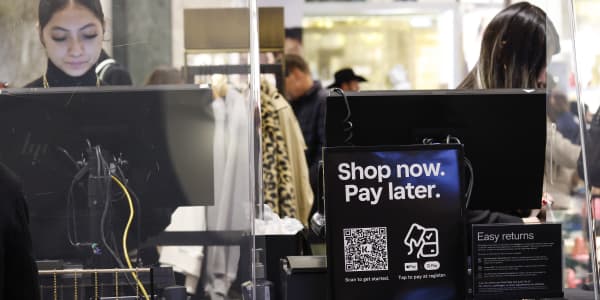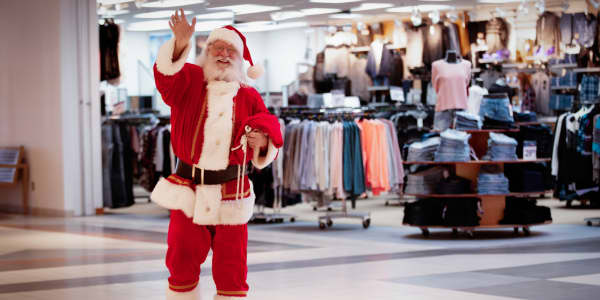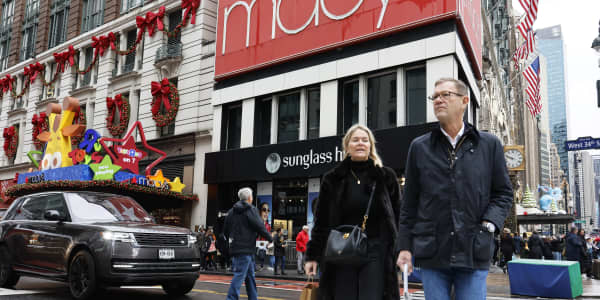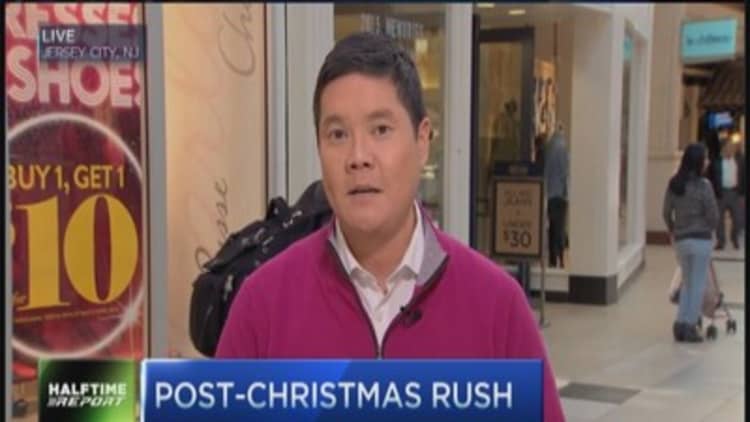
Santa's sleigh delivered more on-time packages this holiday season, though a few retailers still broke their promise to get shoppers their online orders by Christmas.
According to data from customer service analytics firm StellaService, 7 percent of packages did not arrive at their destination by their promised delivery date. That compares with 12 percent last year. What's more, the improvement came even as retailers and delivery services were dealing with a surge in volume compared to last year.
StellaService compiled its data by ordering four items from 40 of the country's top retailers, shipping each of the four orders to different regions around the U.S. It placed the orders on each retailer's standard delivery deadline for guaranteed arrival by Christmas.
Among the 160 orders placed, 11 packages did not make it to their destination on time. According to StellaService, Best Buy, Costco, Crate & Barrel, J.C. Penney, Kohl's, Macy's and Wayfair each had one item arrive late. Toys R Us and Staples missed their deadlines on two packages, and one of Staples' missed deliveries came from an order that was canceled without notifying the purchaser.
Read More5 ways bigger online sales can hurt retailers
Staples, Macy's and Kohl's also missed delivery in 2013, the first year Stella conducted its study. Last year, it examined 25 retailers in three regions of the U.S.
"The carriers were really focused on not having a repeat of last year," said Kevon Hills, vice president of research at StellaService.
None of the nine retailers that missed their delivery promises immediately responded to a request for comment.
Read MoreFingers crossed: Retailers allow late online deliveries
The industry has been carefully watching how well retailers and the carriers, including UPS and FedEx, would handle deliveries this year. In 2013, a combination of bad weather, a record number of packages and late order deadlines caused 2 million packages arrive late, according to data from ShipMatrix.
Despite these issues, many retailers were more aggressive with their online order deadlines this year, as they tried to capture last-minute revenue from procrastinators. According to StellaService, Apple, Dell, Nordstrom and Zappos were the most aggressive with their cutoff date, allowing online orders until Dec. 23. All four retailers delivered their packages to StellaService's agents by Christmas.
"Those retailers that were on their game did extremely well," said Steve Osburn, retail strategist at Kurt Salmon. "There was a lot of money spent this year by FedEx, UPS and all the retailers involved."
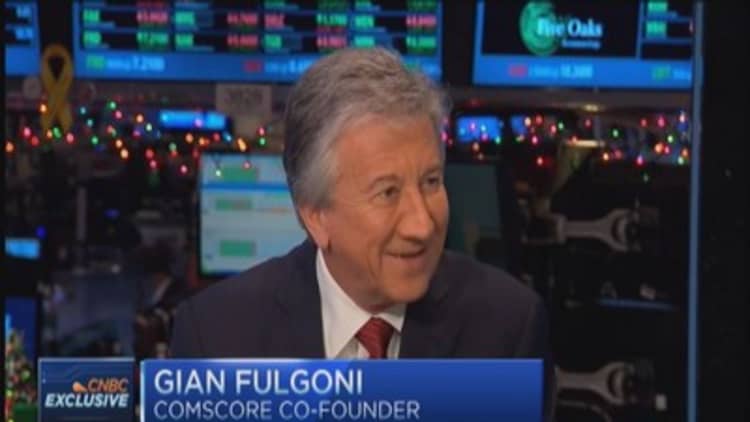
Among these investments, FedEx and UPS increased their holiday hiring figures, and cautioned retailers that they could reject shipments if their networks were inundated with a large quantity of last-minute packages. Earlier this week, The Wall Street Journal reported that UPS and FedEx were limiting express air deliveries due to such an increase.
Based on Kurt Salmon's data, Osburn said none of the delivery issues it identified could be attributed to the carriers. That's a substantial turnaround, as last year they accounted for about 44 percent of delivery errors. Overall, 13 percent of Kurt Salmon's orders did not make it to shoppers in time for Christmas. That's down slightly from 2013, which saw a 15 percent failure rate.
To compile its data, Kurt Salmon ordered about two packages each from a list of 50 retailers.
According to the firm, 25 percent of late deliveries were the result of inventory issues, up from 13 percent last year. That decline in performance is likely due to growing pains as retailers work out issues with programs such as buy online, pick up in store, Osburn said.
About one-third of the late deliveries were attributed to retailers that should have sent their items through the air but didn't upgrade their shipping. That's down from 40 percent last year.
Osburn said that 33 percent of the misses looked like they made it through the distribution center on time, but the carrier did not acknowledge that package until the following day. He said that could be a result of retailers exceeding the delivery cap, but added that from speaking with his clients, the carriers were in constant communication with the major retailers to try to find solutions and reallocate resources.
"Yesterday was restful for tired UPSers following smooth operations through the week that followed our plans and close collaboration with large retail shippers," UPS spokeswoman Susan Rosenberg said. "Our peak holiday season continues with a planned spike for returns, continued online shopping to activate gift cards and inventory replenishment for retailers."
FedEx spokeswoman Katie Wassmer issued a similar statement.
Read MoreRounding the last turn, retail outpaces Black Friday
"FedEx experienced another record peak season and we're proud of the outstanding service provided by our team members right up through Christmas Day," she said. "We expect to continue to experience significant demand for our service following the holiday with continued growth of e-commerce, returns and other evolving retail and e-tail trends, and our networks are ready to deliver."
The stakes were even higher for retailers and the carriers in 2014, with UPS forecasting volume of more than 585 million packages in December—up 11 percent compared to last year. FedEx also said it was anticipating record holiday volume.
According to comScore, revenue from desktop computers for the first 51 days of the November to December holiday season rose 15 percent from last year to $48.3 billion. Last-minute shoppers contributed to this boost, with Dec. 15 to Dec. 21 posting 18 percent growth.
The robust online sales growth flatters what is expect to be solid holiday sales growth. A drop in gasoline prices late in the year may have boosted consumer confidence during the critical holiday shopping season.
Retailers are expected to generate a record $89 billion through online retail sales during November and December, according to Forrester's projections, while the National Retail Federation earlier this year projected sales in November and December to rise 4.1 percent compared to 2013, to $616.9 billion.



